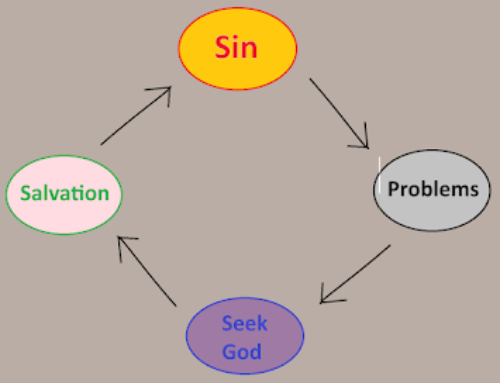Paul is one of the most prominent figures in the New Testament. Between the account of his life in Acts and all of his letters, text about Paul or from Paul makes up quite a bit of the material in the New Testament. It should be no surprise that his words have had a very big impact on Christianity both in how it began and how it is practiced now. We should all be able to agree that, based on what the Bible tells us, Paul was a great man of God. There should also be no debate that if you follow Paul’s instructions you will find yourself on a righteous path.
All that said, I believe we have to be careful about how we apply Paul’s teachings. Christians have historically taken what Paul taught and promoted it as the absolute way to behave. That can be problematic in my opinion because I don’t believe everything Paul said should be treated as if it is commandment from God. I also believe that people tend to ignore context when they use Paul’s statements.
For example, many churches forbid women from having certain positions of authority within the church. Paul’s teachings are the reason for that.
A woman should learn in quietness and full submission. I do not permit a woman to teach or to assume authority over a man; she must be quiet. For Adam was formed first, then Eve. And Adam was not the one deceived; it was the woman who was deceived and became a sinner. But women will be saved through childbearing—if they continue in faith, love and holiness with propriety. – 1 Timothy 2:11-15
We are almost 2000 years removed from when Paul wrote this. Should we really be making rules about how modern churches are formed based on statements like this? Some might argue that we should. They look at Paul’s words here being the same as instructions from God himself, and such instructions don’t ever expire. I would say that both of those points are wrong.
These aren’t instructions straight from God. I have no doubt that Paul was led by the Spirit and inspired by God when he wrote the above verses, but that’s not the same as saying they were instructions from God. We know that because God used prophets to give direct instruction. The Bible has books like Jeremiah and Ezra where those prophets are delivering God’s word verbatim just as he spoke it to them. Paul doesn’t do that, and he never claims to do that.
In the above verse, he doesn’t even say that he believes it’s God’s will. He specifically states that it’s what he doesn’t allow. He also tries to make something akin to a logical argument to justify his decision. If this was a commandment from God, he wouldn’t need to do that. He could simply say that it’s God’s will, and no other justification would be necessary.
Paul chose to implement those restrictions on the churches that he was leading. Maybe God led him to do that, but we know for a fact that God himself did not limit women in such a way. In fact, God used women as prophets, and they, by the nature of their position, held some measure of authority over anyone who heard them, man or woman.
Just look at Anna in Luke 2:36-38. The Bible tells us that she recognized who Jesus was as a child and proceeded to tell everyone in the temple about him. Since we’re told that she was a prophet, we know that she was doing God’s will, but if she was following Paul’s instructions, she might not have been able to do that. We have to take Paul’s words in their proper context. They were given as instructions to people following his ministry. When we try to apply them more broadly than that, we may run the risk of working against God’s will.
Even if Paul’s teachings were meant to be absolute instructions during the time in which he lived. That does not mean they should still be applied as such now. We know for a fact that God’s directives and expectations for his followers can change over time. We see that with the Pharisees and Jesus.
The Pharisees were antagonistic towards Jesus. They were constantly trying to trap him and catch him doing or saying something wrong. Here’s the thing though. The Pharisees were not always wrong with the things they said. When they accused Jesus and the disciples of working on Sabbath (Luke 6:1-8), they were in the wrong, but not because there were no rules about working on the Sabbath. Exodus 25:2 clearly says that no work should be done on the Sabbath and that anyone that does work should be put to death. The Pharisees once brought an adulteress to Jesus to see what he’d say they should do with her. He discouraged them from hurting her despite the fact that the Law clearly says that such a woman should have been killed (Deuteronomy 22:22).
Jesus made it clear that God gave his commandments out with a certain intention, and the leaders at the time had corrupted that. Jesus made the following statement in Mark 7:8
You have stopped following God’s commands, preferring instead the man-made rules you got from others.”
We have to be careful to avoid doing the same thing with Paul. His teachings have merit, but when we try to use them in a way that exceeds God’s intent for those teachings, then we are basically creating our own doctrine…our man-made rules.
Jesus gave us the two commandments from which all others are traced (Matthew 22:37-39). Paul gave a lot of guidance, but if anything he said is meant to be seen as an absolute law, then it has to trace back to those two commandments. Whether it is Paul’s directions on women speaking in church, using what people consider to be coarse language, or getting married, we have to be sure to put his statements in the right context and apply them properly. Otherwise, we run the risk of making the mistakes that the Pharisees made and not holding ourselves and others according to what God wants but instead to what we want or what we think God wants.
It’s fine to look at Paul’s teaching as guidance, but we should be a lot more careful about how we use those teachings especially if we are using those teachings to restrict or judge the actions of others.
Chris Lawyer
Image Courtesy of Shutterstock.com






